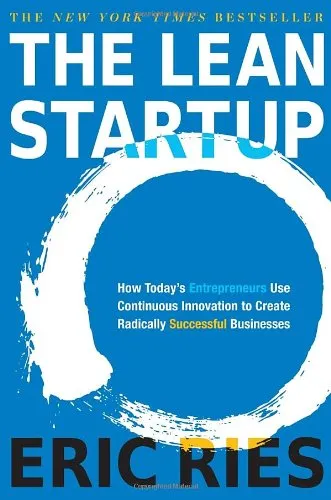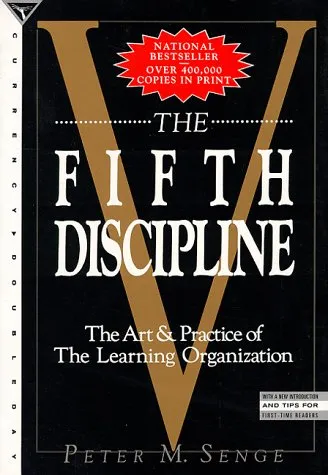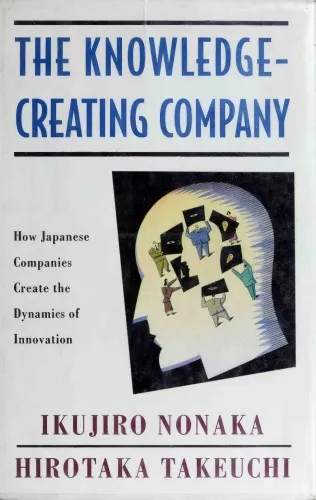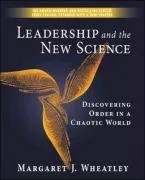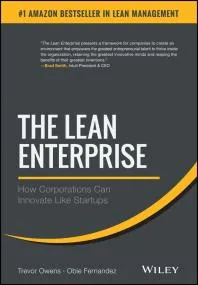Knowledge Management: Linchpin of Change
4.0
Reviews from our users

You Can Ask your questions from this book's AI after Login
Each download or ask from book AI costs 2 points. To earn more free points, please visit the Points Guide Page and complete some valuable actions.کتاب های مرتبط:
Introduction to "Knowledge Management: Linchpin of Change"
In today’s fast-evolving digital landscape, the effective management of knowledge is more than just an intellectual pursuit; it is the essential backbone of innovation, efficiency, and sustained growth. "Knowledge Management: Linchpin of Change" explores the critical role of knowledge in driving change within organizations.
Detailed Summary of the Book
The book delves deeply into the processes and systems involved in capturing, distributing, and effectively using knowledge within an organization. It begins by defining knowledge management (KM) and illustrating its historical evolution. By drawing parallels between the industrial age and the knowledge age, the text highlights how information has supplanted traditional resources as the primary driver of productivity and competitiveness.
Each chapter guides the reader through the intricacies of KM strategies, technologies, and cultural implications. The author presents a cohesive framework for integrating KM practices into organizational processes, catering to sectors ranging from corporate businesses to non-profits and educational institutions. This framework emphasizes collaboration, learning, and adaptation as essential skills in mastering KM.
Key Takeaways
- Innovation Catalyst: Knowledge management serves as a catalyst for innovation by turning insights into actionable strategies.
- Learning Organization: Cultivating an environment where knowledge is freely shared leads to a more adaptable and learning-oriented organization.
- Strategic Asset: Knowledge is treated as a strategic asset that must be protected, nurtured, and leveraged to create competitive advantages.
- Technology Integration: Effective KM combines technology with human cognition, enhancing capabilities for information processing and decision making.
- Cultural Shift: A successful KM program requires a cultural shift towards openness, sharing, and collaborative practices.
Famous Quotes from the Book
"In the knowledge economy, the most valuable asset is not production machinery but the intellectual capital that fuels innovation."
- Sylvia P. Webb
"A culture of knowledge sharing is the hallmark of a truly successful organization where every member is both a teacher and a learner."
- Sylvia P. Webb
"When knowledge is nurtured as a living asset, it contributes immeasurably to the organizational legacy."
- Sylvia P. Webb
Why This Book Matters
This book is crucial for business leaders, academicians, and KM practitioners who aim to leverage knowledge as a transformative tool. It is not merely theoretical; it offers practical guidance, real-world examples, and evidence-based research to help integrate KM into daily practices.
"Knowledge Management: Linchpin of Change" stands out because it addresses current challenges faced by organizations while providing a forward-looking perspective on the future of KM. It takes into account the accelerating pace of technological advancements and offers adaptive strategies that can be tailored to various organizational needs.
In embracing these practices, organizations can foster a culture of innovation and adaptability, positioning themselves to not only survive but thrive in the marketplace. Ultimately, the book underscores the broader societal impact of KM, advocating for knowledge sharing as a means of driving not just organizational success, but positive change in communities worldwide.
Free Direct Download
You Can Download this book after Login
Accessing books through legal platforms and public libraries not only supports the rights of authors and publishers but also contributes to the sustainability of reading culture. Before downloading, please take a moment to consider these options.
Find this book on other platforms:
WorldCat helps you find books in libraries worldwide.
See ratings, reviews, and discussions on Goodreads.
Find and buy rare or used books on AbeBooks.
1533
بازدید4.0
امتیاز0
نظر98%
رضایتReviews:
4.0
Based on 0 users review
Questions & Answers
Ask questions about this book or help others by answering
No questions yet. Be the first to ask!

